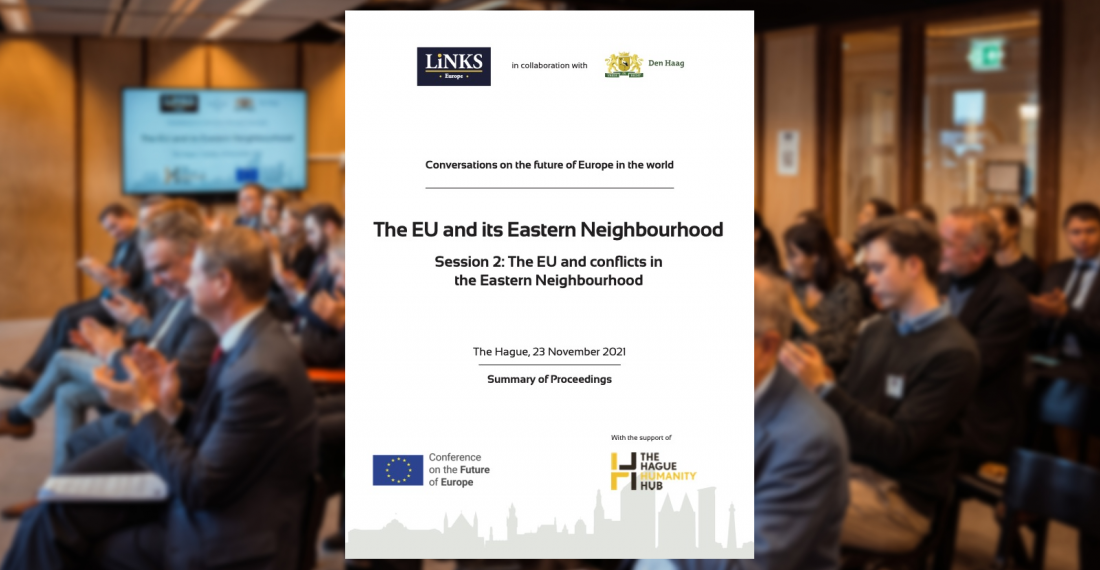The conference, “The EU and its Eastern Neighbourhood”, was held over three sessions at The Hague Humanity Hub in The Hague on Tuesday 23 November 2021. Nearly one hundred people participated in all or some of the three sessions, including Ambassadors accredited to the Netherlands, representatives of international organisations, journalists, academics, civil society representatives, students and concerned citizens. This event took place in the series 'Conversations on the future of Europe in the world' and was run in the process of the Conference on the Future of Europe.
The second session addressed the topic, ‘The EU and conflicts in the Eastern Neighbourhood’.
The Chair of the session, Alexander Hug, Head of Mission, Iraq, International Commission on Missing Persons; Former Principal Deputy Chief Monitor of the OSCE Special Monitoring Mission to Ukraine, welcomed participants and introduced the topic of the session and the speakers: Ambassador Mika-Markus Leinonen, EU Liaison Officer to The Hague, The European External Action Service, who was invited to make opening remarks; followed by the keynote speaker Tony van der Togt, Senior Associate Fellow, Russia and Eastern Europe Centre, Clingendael Institute. The Chair also introduced the speakers on the panel: HE David Solomonia, Ambassador of Georgia to the Netherlands; Dr Anar Ahmadov, Associate Professor, Leiden University; and Alexander Petrosyan, a Brussels-based independent analyst, focusing on the South Caucasus region and Eastern Europe.
Read the full summary here.






